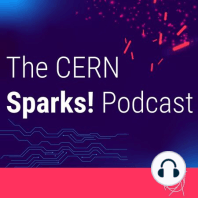2 min listen

S1 Ep2: S1 #2 Quantum AI — with Maria Spiropulu & Vivienne Ming
S1 Ep2: S1 #2 Quantum AI — with Maria Spiropulu & Vivienne Ming
ratings:
Length:
32 minutes
Released:
Jul 9, 2021
Format:
Podcast episode
Description
Episode 2 collides two rockstars of the world of artificial intelligence to reimagine the field for the next generation. Is consciousness quantum or just me talking to myself? Could quantum computing unlock a step change in artificial intelligence? Our guests also get down to earth on the need for AI to tackle real-world data-poor problems from hiring bias to diagnosing manic episodes in bipolar sufferers. There is a recurring flaw in applied artificial intelligence, argues Ming. Machine learning is not a Deus ex machina for your company’s problems: expertise is queen, and innovation by gender and ethnic minorities is problematically undervalued.
To find out more, join hosts Mark Rayner and Abha Eli Phoboo as they speak with Maria and Vivienne on the subject of Quantum AI.
Vivienne Ming is a theoretical neuroscientist and serial AI entrepreneur. Maria Spiropulu is an influential experimental particle physicist who is leading the way on the use of quantum technologies in AI.
To find out more, join hosts Mark Rayner and Abha Eli Phoboo as they speak with Maria and Vivienne on the subject of Quantum AI.
Vivienne Ming is a theoretical neuroscientist and serial AI entrepreneur. Maria Spiropulu is an influential experimental particle physicist who is leading the way on the use of quantum technologies in AI.
Released:
Jul 9, 2021
Format:
Podcast episode
Titles in the series (14)
Trailer - The CERN Spark's Podcast - Future Intelligence by The CERN Sparks! Podcast